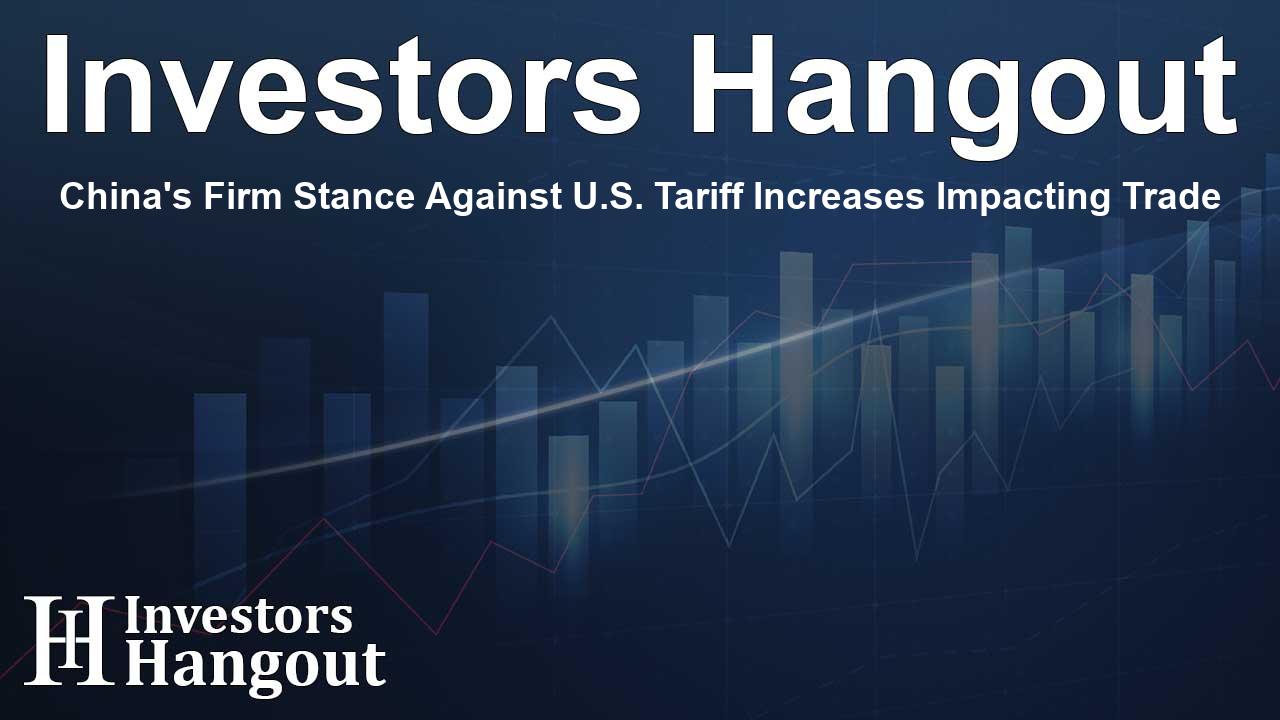China's Firm Stance Against U.S. Tariff Increases Impacting Trade

China's Opposition to U.S. Tariff Hikes
In a recent development that showcases the ongoing trade tensions, China has taken a firm stance against the United States' decision to increase tariffs on imported goods. The Chinese Ministry of Commerce has publicly stated its objections, urging the U.S. to amend its approach promptly.
Response from the Chinese Government
According to a statement released by the Ministry, officials are calling for an immediate cessation of these tariff hikes. This response reflects the dedication of the Chinese government to advocate for its domestic companies, emphasizing that the U.S. should correct its actions that are seen as detrimental to trade relations.
Defending Chinese Firms' Interests
China's commitment to defending the interests of its companies illustrates the gravity of the situation. The Ministry's statement makes it clear that necessary measures will be implemented to ensure that the impact of these tariffs is minimized. The government is steadfast in its position, promising to protect its businesses from external pressures.
The Broader Impact on Trade Relations
This ongoing dispute over tariffs could have significant implications for global trade dynamics. The trade relationship between the U.S. and China has been under strain for several years, with both nations imposing and retaliating against tariffs. By opposing the U.S. actions, China is not only standing up for its companies but also signaling its willingness to engage in dialogue over trade issues.
Looking Ahead
As both countries navigate this rocky landscape, it remains to be seen how the situation will unfold. The potential for dialogue exists, but so does the possibility of further escalation if measures are not taken to alleviate these tensions. China's approach indicates a desire for cooperation, all while ensuring that its domestic market is shielded from adverse effects.
Frequently Asked Questions
What are the key points of China's response to the U.S. tariffs?
China opposes the U.S. tariff hikes, urging them to lift tariffs and assert its commitment to protect Chinese firms' interests.
How is China planning to defend its businesses?
The Chinese government has indicated that it will take necessary measures to safeguard the interests of its companies affected by the tariffs.
What are the implications of these tariff disputes?
The tariff disputes could significantly affect global trade relations and increase tensions between the U.S. and China.
Why is the relationship between the U.S. and China important?
As two of the largest economies in the world, their trade relationship influences global market trends and economic stability.
What could happen next in U.S.-China trade relations?
The situation could either lead to renewed dialogue aimed at resolution or further escalation of tariffs if not addressed.
About The Author
Contact Hannah Lewis privately here. Or send an email with ATTN: Hannah Lewis as the subject to contact@investorshangout.com.
About Investors Hangout
Investors Hangout is a leading online stock forum for financial discussion and learning, offering a wide range of free tools and resources. It draws in traders of all levels, who exchange market knowledge, investigate trading tactics, and keep an eye on industry developments in real time. Featuring financial articles, stock message boards, quotes, charts, company profiles, and live news updates. Through cooperative learning and a wealth of informational resources, it helps users from novices creating their first portfolios to experts honing their techniques. Join Investors Hangout today: https://investorshangout.com/
The content of this article is based on factual, publicly available information and does not represent legal, financial, or investment advice. Investors Hangout does not offer financial advice, and the author is not a licensed financial advisor. Consult a qualified advisor before making any financial or investment decisions based on this article. This article should not be considered advice to purchase, sell, or hold any securities or other investments. If any of the material provided here is inaccurate, please contact us for corrections.
